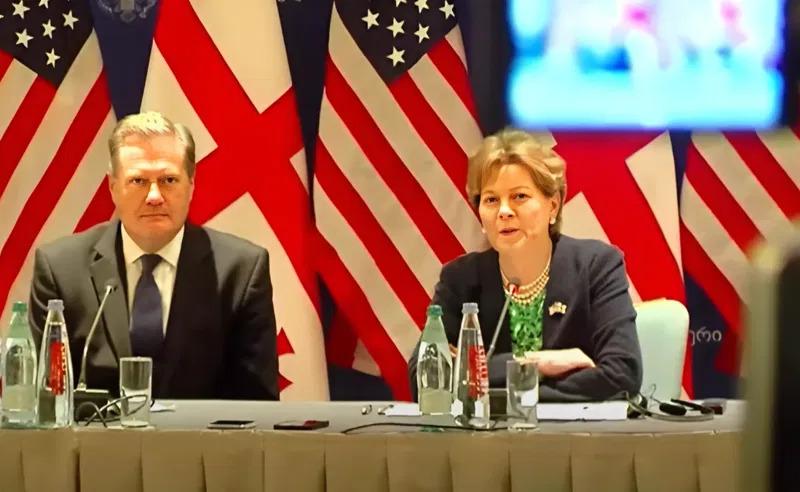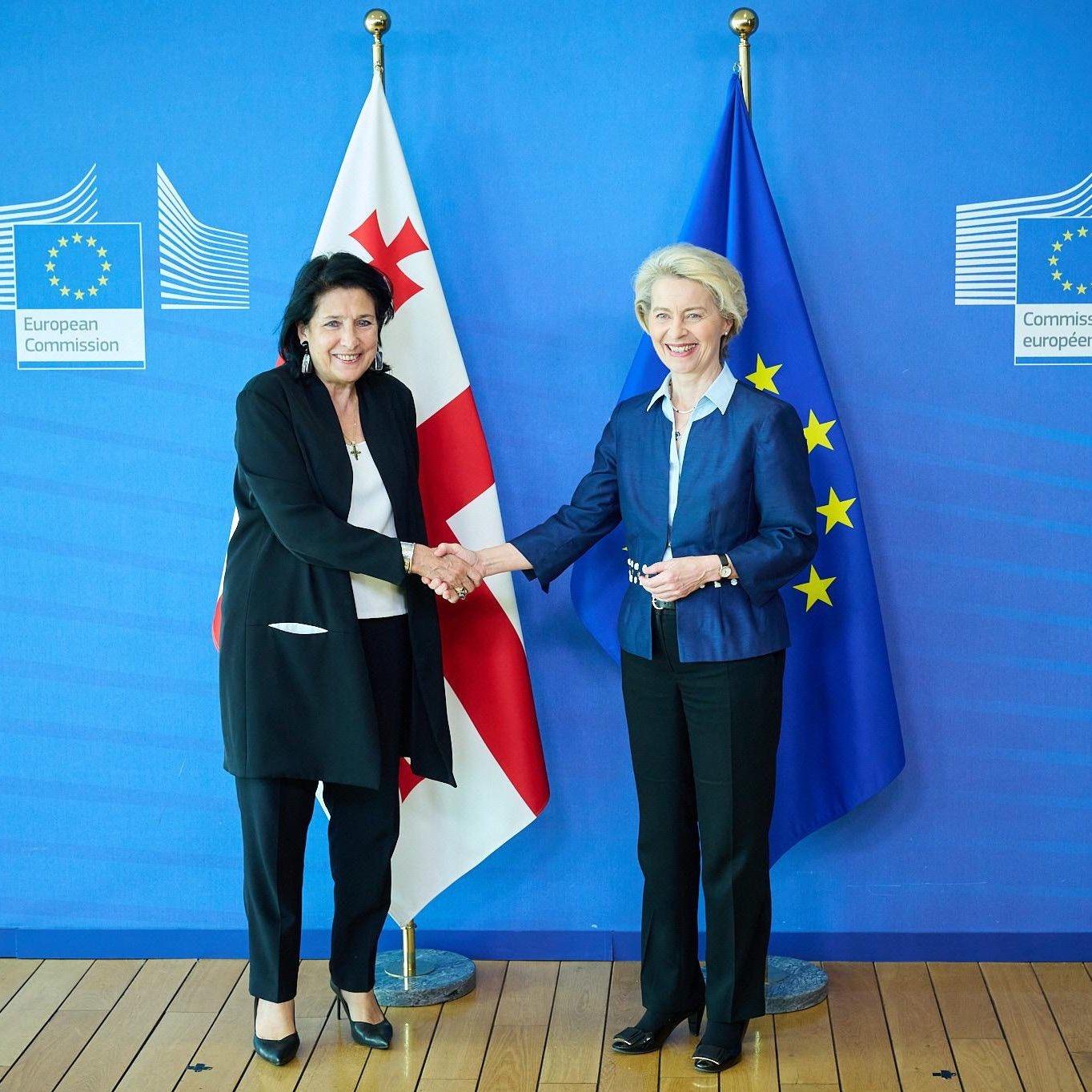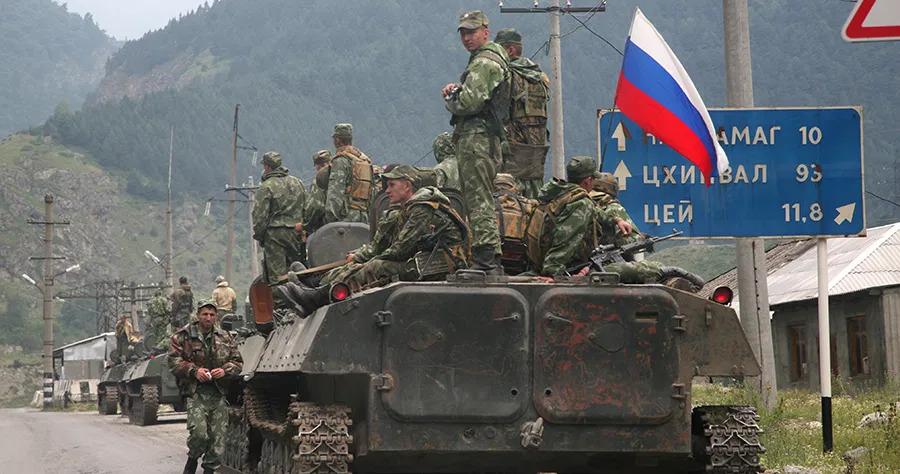West’s dilemma: Will Georgia shift to Kremlin or uphold EU aspirations? Georgia’s future hinges on West’s next move
The relationship between Georgia and its Western allies, the US and the EU, has reached a critical juncture. The catalyst for this deterioration has been the Georgian government's adoption of a controversial law on foreign agents, which mirrors similar legislation in Russia. This law, viewed by many as an affront to democratic principles, has led to significant backlash from both the US and the EU, culminating in the suspension of financial aid to Georgia. The law's passage signals a broader struggle within Georgia over its geopolitical orientation and internal governance, with Western nations fearing a drift towards authoritarianism under Russian influence.
Georgia has long been seen as a key ally in the Caucasus region, with aspirations of joining the Euro-Atlantic community. However, recent actions by the Georgian government have raised concerns about its commitment to democratic values and European integration. The situation is further complicated by Russia's ongoing occupation of 20% of Georgian territory, a reminder of the ever-present threat posed by Moscow. The current tension between Georgia and its Western partners underscores the fragile nature of this relationship and the high stakes involved.
US & EU reactions to democratic backsliding
The adoption of the foreign agents law has been met with strong condemnation from the United States and the European Union. Both have made it clear that such actions are incompatible with Georgia's stated goal of joining the Euro-Atlantic community. The US response has been particularly sharp, with bipartisan concerns being voiced by both Democratic and Republican lawmakers.
Senator Jeanne Shaheen and Congressman Mike Turner, who recently visited Georgia, were unequivocal in their criticism of the Georgian government's actions. They emphasized that the first step to restoring the relationship must come from Tbilisi, with a clear commitment to democratic principles and a rejection of authoritarian practices.

Senator Shaheen underscored the importance of free and fair parliamentary elections, scheduled for October 2024, as a crucial test of Georgia's democratic credentials. She also highlighted the need for the Georgian government to repeal the foreign agents law, which she described as harmful to the nation's aspirations for EU membership.
Congressman Turner echoed these sentiments, stressing that the US-Georgian relationship has been one of the strongest in the region but is now at risk due to the Georgian government's actions.
The impact of the foreign agents law
The foreign agents law has become a flashpoint in the broader struggle for Georgia's political future. The law requires organizations that receive more than 20% of their funding from abroad to register as foreign agents, a label that carries negative connotations and is seen as a means of stifling dissent.
Critics argue that the law is modeled after similar legislation in Russia, which has been used to suppress independent media and civil society organizations. The adoption of this law has raised fears that Georgia is moving away from its pro-Western trajectory and towards a more authoritarian model of governance.
The response from the Georgian government to these criticisms has been defiant. Prime Minister Irakli Kobakhidze and other officials have dismissed concerns raised by the US and the EU, arguing that the law is necessary for national 
security and transparency. However, this stance has only deepened the rift between Georgia and its Western allies, with many in the international community viewing the law as a step backward for Georgian democracy.
Scenarios for Georgia's future
The current impasse between Georgia and its Western partners presents several possible scenarios for the country's future.
One scenario is that the Georgian government could heed the warnings from the US and the EU, repeal the foreign agents law, and take steps to restore its democratic credentials. This would likely lead to a resumption of financial aid and a strengthening of Georgia's ties with the West. However, this outcome would require significant political will from the Georgian leadership, which has so far shown little inclination to change course.
Another scenario is that Georgia continues on its current path, deepening its authoritarian practices and further alienating its Western allies. In this case, the suspension of financial aid could become permanent, and Georgia could find itself increasingly isolated on the international stage. This would leave the country vulnerable to Russian influence, which could exploit the situation to further its own interests in the region. Such a scenario would represent a significant setback for Georgia's Euro-Atlantic aspirations and could have serious implications for regional stability.

A third scenario is that the upcoming parliamentary elections in October become a turning point. If the elections are seen as free and fair, and the opposition makes significant gains, it could signal a shift in Georgia's political direction. This would likely be welcomed by the US and the EU, who have made it clear that the integrity of the electoral process is a key concern. However, if the elections are marred by irregularities, it could exacerbate the current crisis and lead to further deterioration in relations between Georgia and the West.
The US & EU's commitment to Georgia's democratic aspirations
Despite the current tensions, both the US and the EU have reiterated their commitment to supporting Georgia's democratic aspirations. During their visit to Georgia, Senator Shaheen and Congressman Turner made it clear that the US remains committed to Georgia's sovereignty, territorial integrity, and Euro-Atlantic integration. They also emphasized that this commitment is bipartisan and bicameral, meaning it will not change regardless of the outcome of future US elections.
This message is particularly important given the Georgian government's recent attempts to frame the US as an antagonist. The narrative that the US is trying to organize a coup in Georgia has been firmly rejected by US officials, who have described it as "incorrect" and harmful to the bilateral relationship. The US has also made it clear that it will not tolerate democratic backsliding in Georgia, and that further actions, including sanctions, could be considered if the situation does not improve.
The EU has also expressed its concern about the state of democracy in Georgia, with officials warning that the adoption of the foreign agents law could jeopardize Georgia's EU membership aspirations. The EU has been a strong supporter of Georgia's European integration, providing financial aid and technical assistance to help the country meet the requirements for membership. However, the EU has also made it clear that this support is conditional on Georgia upholding democratic values and the rule of law.
Conclusion: The road ahead for Georgia
The relationship between Georgia and its Western allies is at a crossroads. The adoption of the foreign agents law has sparked a crisis that could have far-reaching consequences for Georgia's future.
The US and the EU have made it clear that they will not support a government that undermines democratic principles, and they have taken concrete steps to demonstrate this by suspending financial aid. However, they have also left the door open for a reset in relations, provided that the Georgian government takes the necessary steps to restore its democratic credentials.
The upcoming parliamentary elections will be a critical test of Georgia's commitment to democracy. If the elections are conducted in a free and fair manner, it could help to rebuild trust between Georgia and its Western partners.

However, if the elections are seen as flawed, it could lead to further isolation and leave Georgia vulnerable to Russian influence. The stakes are high, and the road ahead for Georgia is uncertain. But one thing is clear: the future of Georgia's relationship with the West will depend on its ability to uphold the democratic values that have been at the heart of its post-Soviet transformation.








